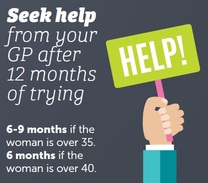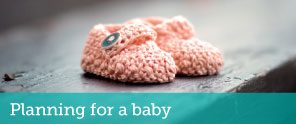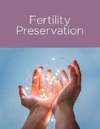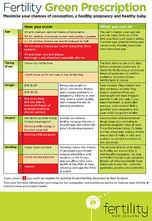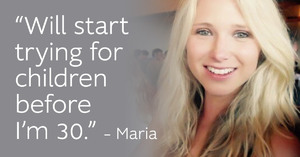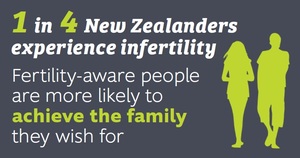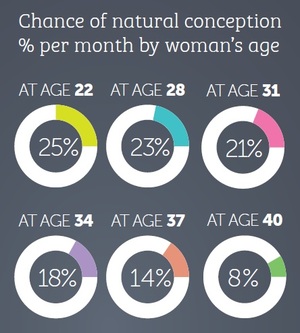Planning for a baby
Planning for a family, either now or in the future? When it comes to making babies, a little information goes a long way. People who are armed with this information will have a better chance of getting pregnant, and having a healthy pregnancy and baby.
- Age and fertility - what does it mean for women and men?
- Timing of sex for conception
- Any medical conditions affecting your fertility?
- Weight and nutrition to optimise your chance of conception, a healthy pregnancy and baby
- Lifestyle factors impacting on your chance of conception
- Trouble conceiving? read here for your next steps
What is infertility?
Primary infertility is defined as an inability to conceive after one year of trying, or an inability to carry a pregnancy to a live birth. Secondary infertility is difficulty conceiving after already having conceived (and either carried the pregnancy to term or had a miscarriage).
The problem is common. Approximately 1 in 4 people in New Zealand experience infertility. A number of these people will require some form of medical assistance to achieve a pregnancy.
If you have been trying to conceive and have been unsuccessful, and you are concerned, then it is worth seeking medical advice.
People that should seek help early are:
- Women who have irregular periods, which is a sign that ovulation may not be occurring;
- Women who have had pelvic surgery (to ovaries, tubes or appendix) or pelvic infection which may have damaged fallopian tubes;
- Women over 35 years of age;
- Women with known reproductive pathology, e.g. endometriosis, fibroids, PCOS;
- Men who have had genital surgery, infection or significant trauma.
If none of these factors exist, 80% of people can expect to get pregnant in the first year of trying. A normally fertile couple in their 20’s have on
average a 25% chance of conceiving each month. Infertility is often experienced as an on-going grief, a grief in which many people feel alone and
isolated. People experiencing secondary infertility after one or more natural children may also experience similar grief.
Help is available!
Over the past 20 years, there have been significant advances in treatment for those with fertility problems for many. However, these treatments can take quite some time to complete and do involve tests for both males and females. This period of waiting, investigation and treatment can prove quite stressful. After initial tests with your local GP, you may be referred to a Fertility Clinic. These clinics are located in Auckland (3 individual clinics), Hamilton, Wellington, Christchurch (2 individual clinics) and Dunedin.
Many clinics hold satellite clinics in other regions for initial or review consultations. You also have the opportunity to be placed on a public waiting list for fertility treatment (if you meet the criteria). Some people choose to undertake a Preconception Health Programme focussing on lifestyle adaptations, weight and nutrition to improve their general and reproductive health. This could increase their chances of a natural conception and will certainly support any future medical treatments.

